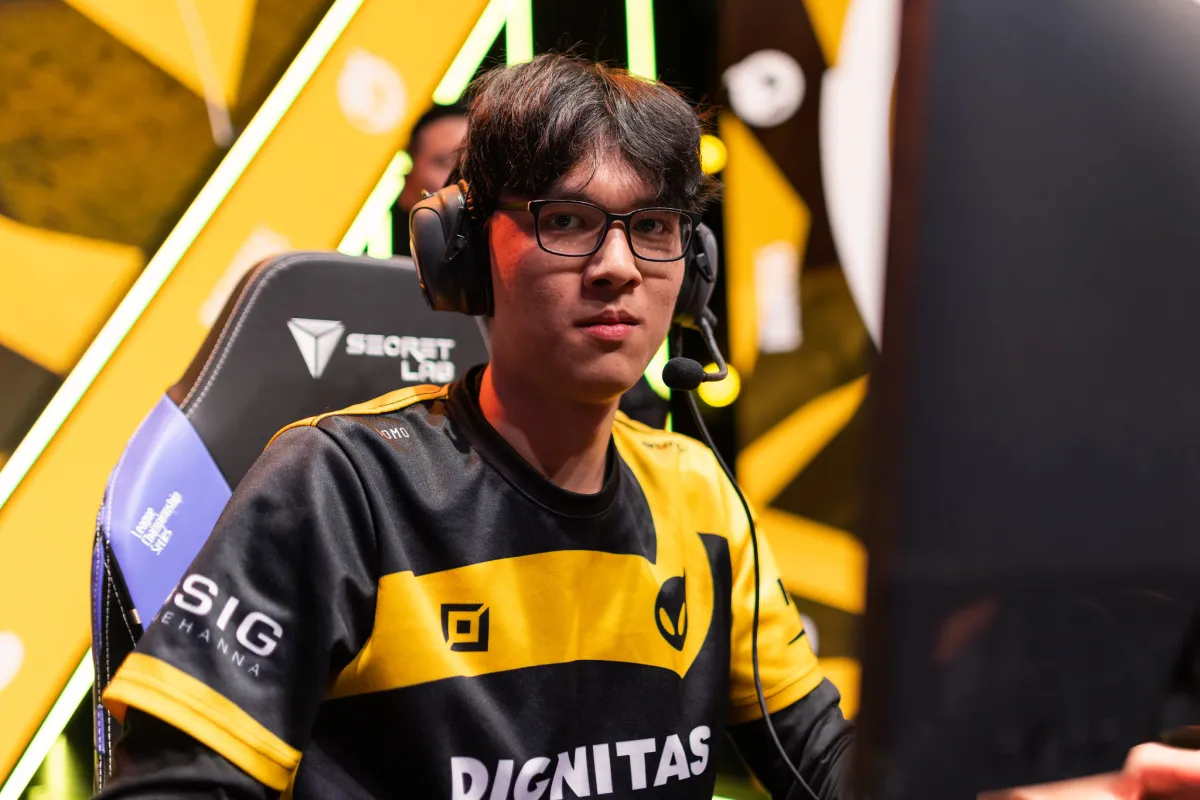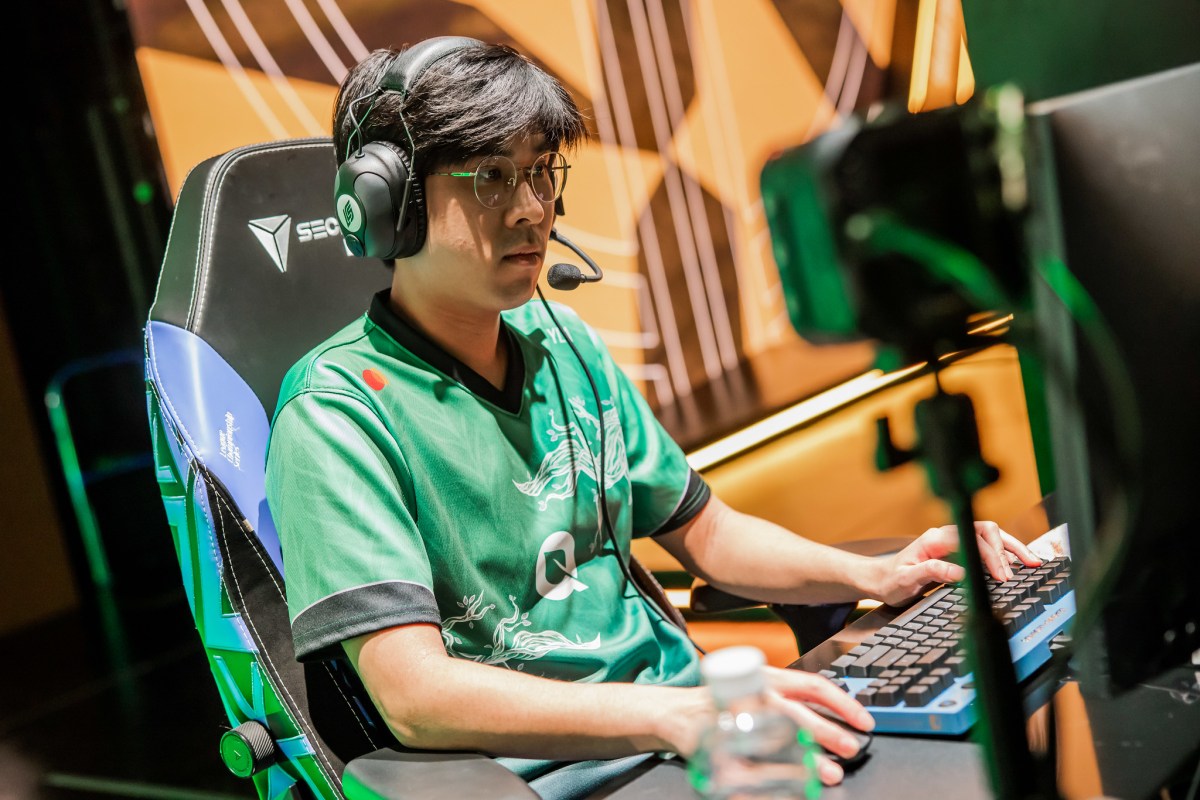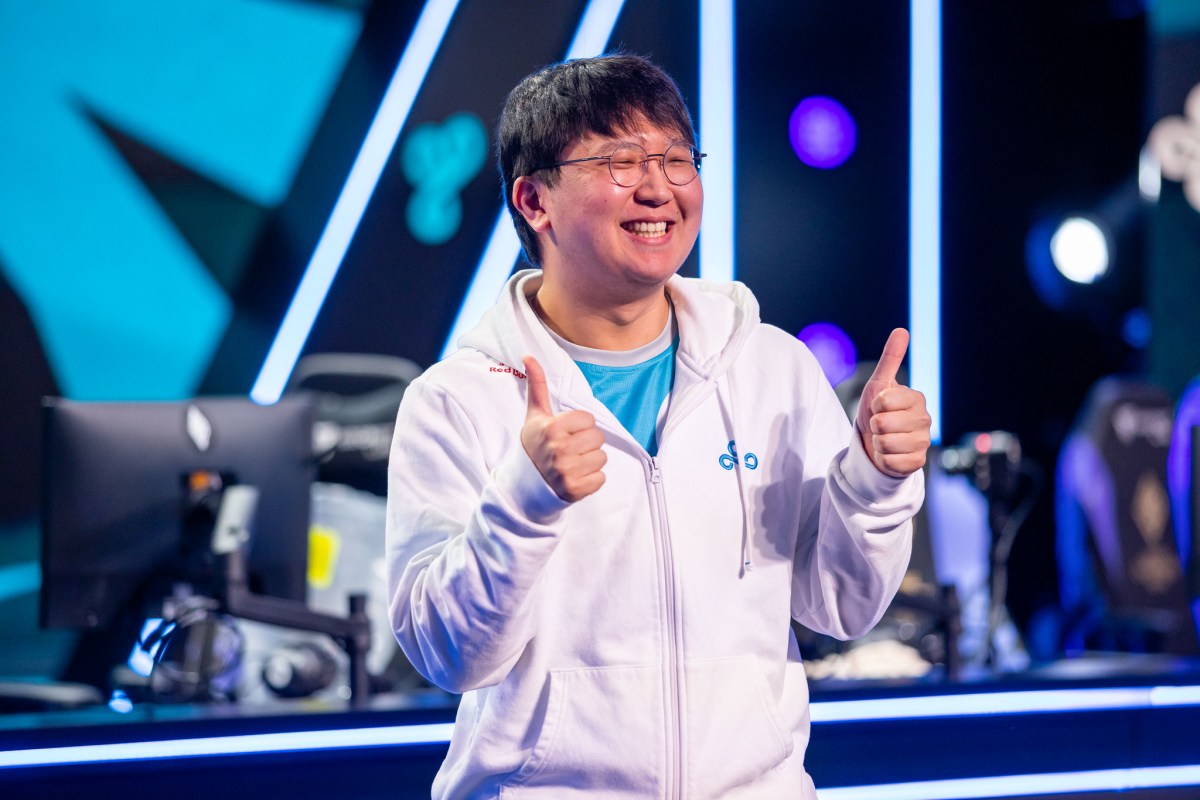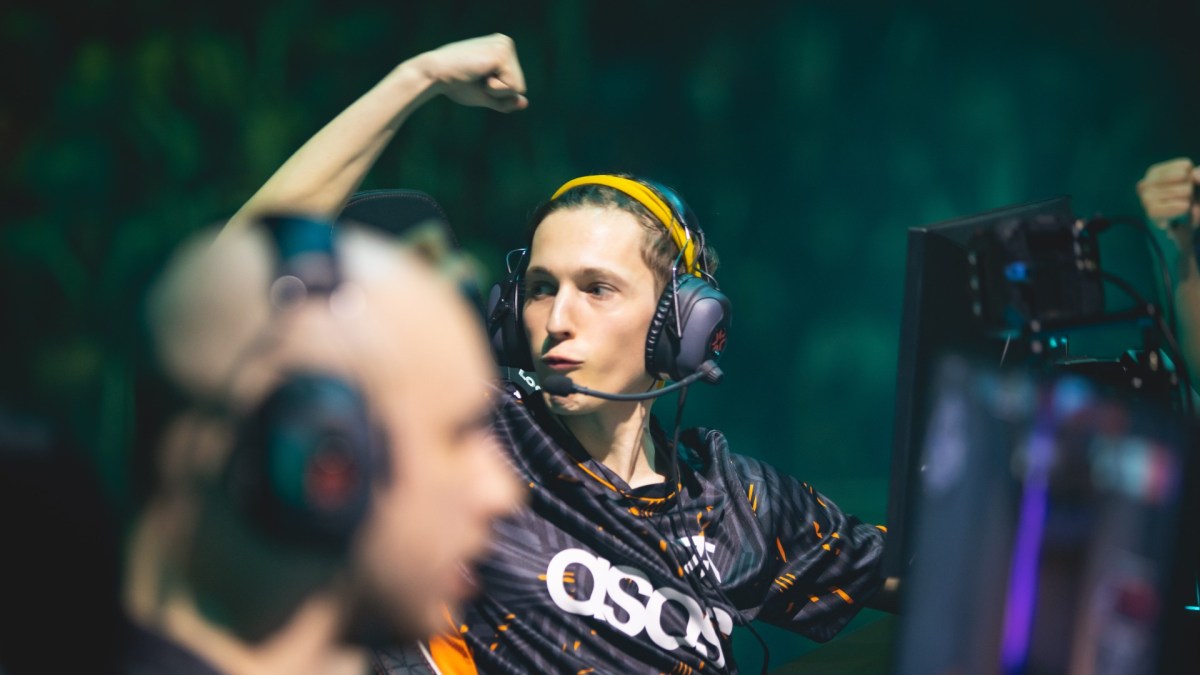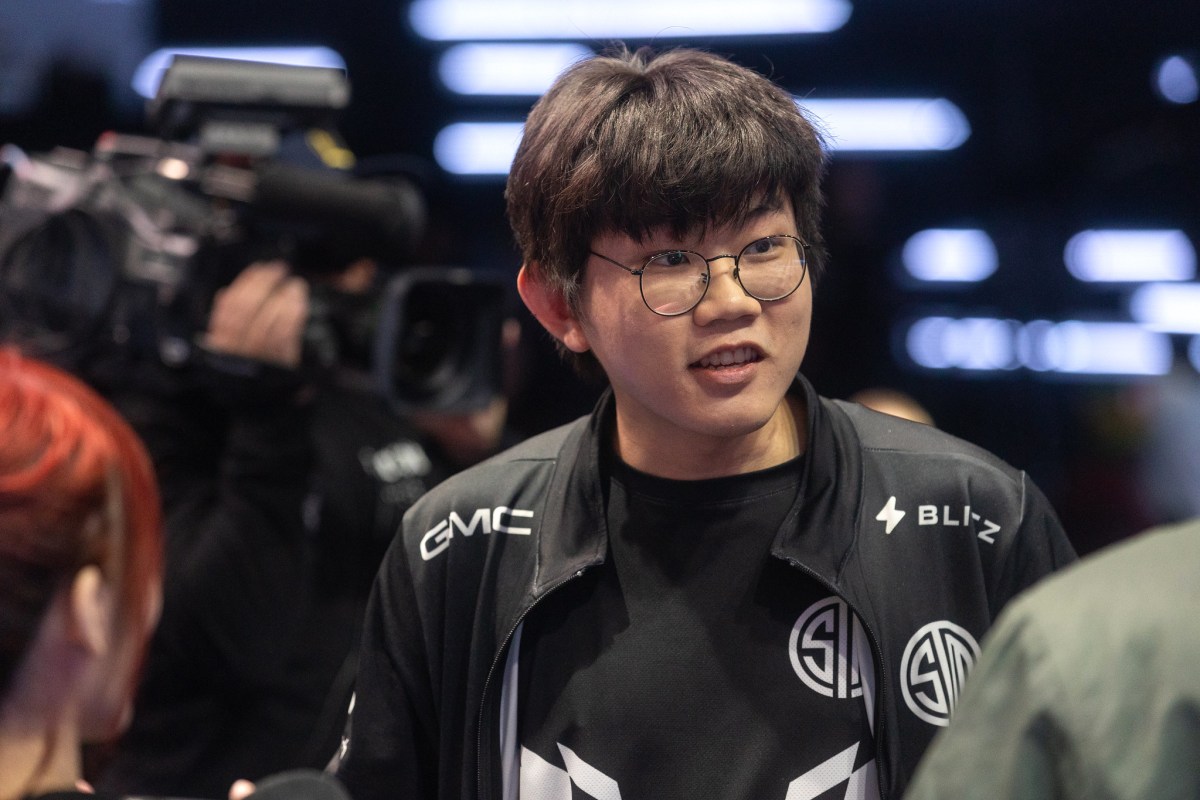Daily Esports was at EGLX this year, and among the various booths of the crowded convention center, there was one that showcased Lambton College’s Esports Entrepreneurship and Administration program. It was there that we met Matthew Hutchinson, its program coordinator.
The esports program teaches students a plethora of skills such as marketing, league management, accounting, and communications. Meanwhile, the school itself has a dedicated esports arena for its Call of Duty, League of Legends, Fortnite, Rocket League, Hearthstone, and Super Smash Bros. varsity players to practice and compete.
Hutchinson sat down with Daily Esports for an in-depth interview about how the program was fully realized and how to go about spearheading the blueprint for it. Hutchinson also shared his insights on how to take skilled esports players and post-secondary institutions to the next level.
Daily Esports: What was it that initiated the idea of Lambton College’s Esports Entrepreneurship and Administration program, and what were the steps toward having it fully realized within the school and faculty?
Matthew Hutchinson: The program was first conceptualized probably three-to-four years ago. The idea was first generated from our vice president of academic, Donna Church, at the time, as well as our vice president of finance, Margaret Dragan. Those two ladies… I think is really important to note, especially in a male-dominated industry — that the leaders behind the first wholly dedicated esports academic program in North America were women.
So both Donna and Margaret had attended a conference that was for all colleges. Within that, there were different conferences and some breakout sessions. And one of them was a discussion on the 21st century and the growth of esports. All of the other administrators kind of balked at the idea of esports being a legitimate thing and, even more so, esports being an academic program.
But Donna and Margaret saw this as an opportunity for our institution to differentiate ourselves and to move into an untapped market, which was very progressive and innovative from their standpoint. That led to our program being launched. The process of the program actually being institutionalized was a pretty typical process.

DES: What were some of the challenges that you faced before esports became an official program, and how did you overcome these challenges?
Hutchinson: The issue that was run into at that point was finding academic leaders in this space, and they were nonexistent. There were no academic resources that existed to leverage as a foundation for the development of the program and the development of the specific courses within the program.
There was no preformed or preconceptionalized program map including all of the different courses that would be needed for a program of this type. So it was a lot of discussion, it was a lot of speaking with industry leaders to get a really strong understanding of what the industry needs from employers for graduates from this type of program. That kind of helped to form what the program map would look like and all the courses.
From there, it was the development of the respective curriculums for each individual course that was specific to our esports program. We leveraged existing courses to help fill out the program, but we needed specific esports courses, and that was where I came in.
I was hired as program coordinator in August of 2018, a month prior to the program’s first launch and first intake, and I expedited development and ensured that we had our curriculum ready to be taught in the first month.
DES: You mentioned the industry needs, as well as employers for graduates of the esports program. Why is it important for colleges and universities to understand this demand and embrace esports programs?
Hutchinson: I have to dispel the criticism of having an esports academic program all the time on a daily basis, but someone that is a detractor of our program is honestly just ignorant, doesn’t understand the growth of the esports industry, and isn’t aware of what’s happening in the world — especially with regards to esports. So I empathize with them as faculty in business at Lambton College prior to becoming program coordinator for this program. I definitely believe that to really have a career or establish a career, it had to be in business. Esports wasn’t going to be an academic program, per say, and I would have definitely believed that six years ago. But looking at the growth of the industry, you cannot discredit the fact that there is a ton of opportunity as this industry continues to grow.
The industry is still very much in its infancy. There are still established elements of the industry that are trying to determine how they are better monetizing the industry, how they’re increasing their revenue, and how they’re growing their own capacities within the industry as well. (There’s a ripple effect) happening because of the industry that’s affecting glasses manufacturers, that’s affecting travel and tourism, that’s affecting all of these other sectors in different business industries. So there’s a plethora of opportunity that exists for students who are graduating from the program.
We work with industry partners to identify what those greatest needs are, to ensure our curriculum helps to develop the skills that are needed for those specific growth opportunities in industry and to ensure that our students are ready and capable to enter into the industry and to establish themselves in a career.

DES: Now, we met at EGLX this year at the Lambton College booth. What was the response like in terms of interest for the esports program?
Hutchinson: It was my first time attending EGLX as program coordinator, and I didn’t know what to expect. I was pleasantly surprised with the scope and scale of the event. It was awesome to attend that firsthand.
I thought we were in a very good location, and we had a ton of traffic. But there was definitely a mixed audience that attended EGLX. A lot of fans of the game. I was surprised at how the average age of the demographic that came through was actually a lot older and more established than I had expected. I thought it was going to be a younger audience that would be looking towards college, but it was actually an older demographic. So that was difficult for us to pitch. But the prospective students, the high school students, the elementary school students that we did talk to were all super excited that this was an option for them to pursue for a post-secondary education.
DES: On that note, I know the college has an esports arena. Can you tell our readers a bit more about how that ties into the esports program, as well as the esports varsity teams for both current and prospective students?
Hutchinson: The arena has a multi-tiered benefit to our program, and it provides us with a lot of synergy in terms of experiential learning opportunities. And then on the varsity side, it’s giving our students a place where they can compete and they can practice and they can prepare for competition.
On the operational side … building exposure for esports within our own community is very important for the mandate of our program and the existence of our program.
We offer drop-in rates to anybody in the community that can come in, and they can use our esports arena. We provide opportunities for events like birthday parties, team-building getaways for corporate events, and even putting on our own events — some small Fortnite competitions or Smash competitions or whatever it may be in our own arena. So all of that operationally helps to generate revenue and keep the esports arena operational.
For the students on the operational side, they have the ability to get involved on either a voluntary basis or some work-study opportunities to be able to work with the arena in helping to organize and manage these events and also manage the operation of the arena itself.

DES: Lambton College students have been competing in League of Legends tournaments recently. What is the training and the practice schedule like? For instance, does it consist of scrims and play-by-play reviews?
Matthew Hutchinson: It’s different for every team. Presently, we have six varsity teams — Call of Duty, League of Legends, Fortnite, Rocket League, Hearthstone, and Super Smash Bros. Each team has a coach of varying experience and quality in terms of their own player experience. Each team will do VOD reviews, so they’ll look at video replays of their own games and they’ll do that with a coach and other players.
We do have varying levels of talent within each team, too. So we can have a high-ELO player for Rocket League who is providing some feedback (to another player of lower ELO) to help them rank up, if you will. From a team standpoint, the team will do VOD reviews with the coach and understand strategy better.
For the tryouts that we do, we will test them on a number of different skills — not just on their gameplay, but also test them on mental acuity, mental awareness, reaction speed, amiability. It gets particular to each respective game.
DES: We already know that esports is a growing industry, but if we do compare Canada to, for example, the U.S. or Korea, we still have a lot to work on. How would you say Lambton College fits into the picture of helping the Canadian esports industry grow?
Hutchinson: That’s the first time I’ve ever been asked that question. That’s a really good question, and I’m actually surprised that I’m not asked that question. Within our own program advisory committee and the external partners I work with, that’s of huge importance to everyone involved in esports in Canada.
There’s a lot more opportunity that exists south of the border and a lot more opportunity that exists even in Europe, comparatively. But how Lambton College fits into that picture is very important. We are approaching the development and growth of Canadian esports at a grassroots level. Establishing a localized environment for esports is very important, and establishing the blueprint on how to be able to do that.
As other colleges and other institutions move into this space… because it’s important to be able to grow our own industry in Canada, we do have to help other institutions (grow) that we would be competing against. … So developing a blueprint for what a localized esports economy looks like and establishing greater leagues and competitions provincially and nationally is going to be part of our mandate. We’re working with the collegiate league and Twitch in trying to build those bridges in those connections so that we can establish different platforms for competition amongst institutions.
We thank Matthew Hutchinson again for his time and wish him and Lambton College luck in their endeavors.
[This interview has been edited for clarity and brevity.]



